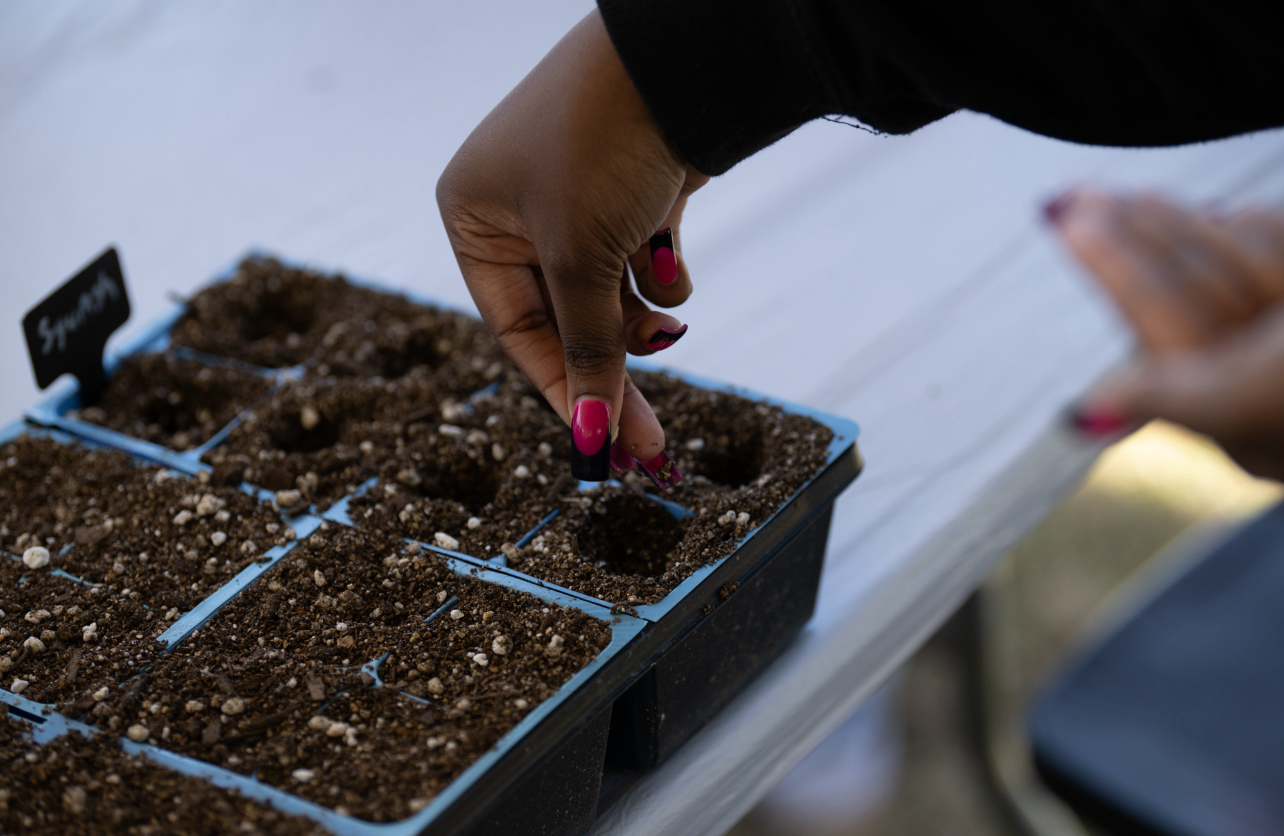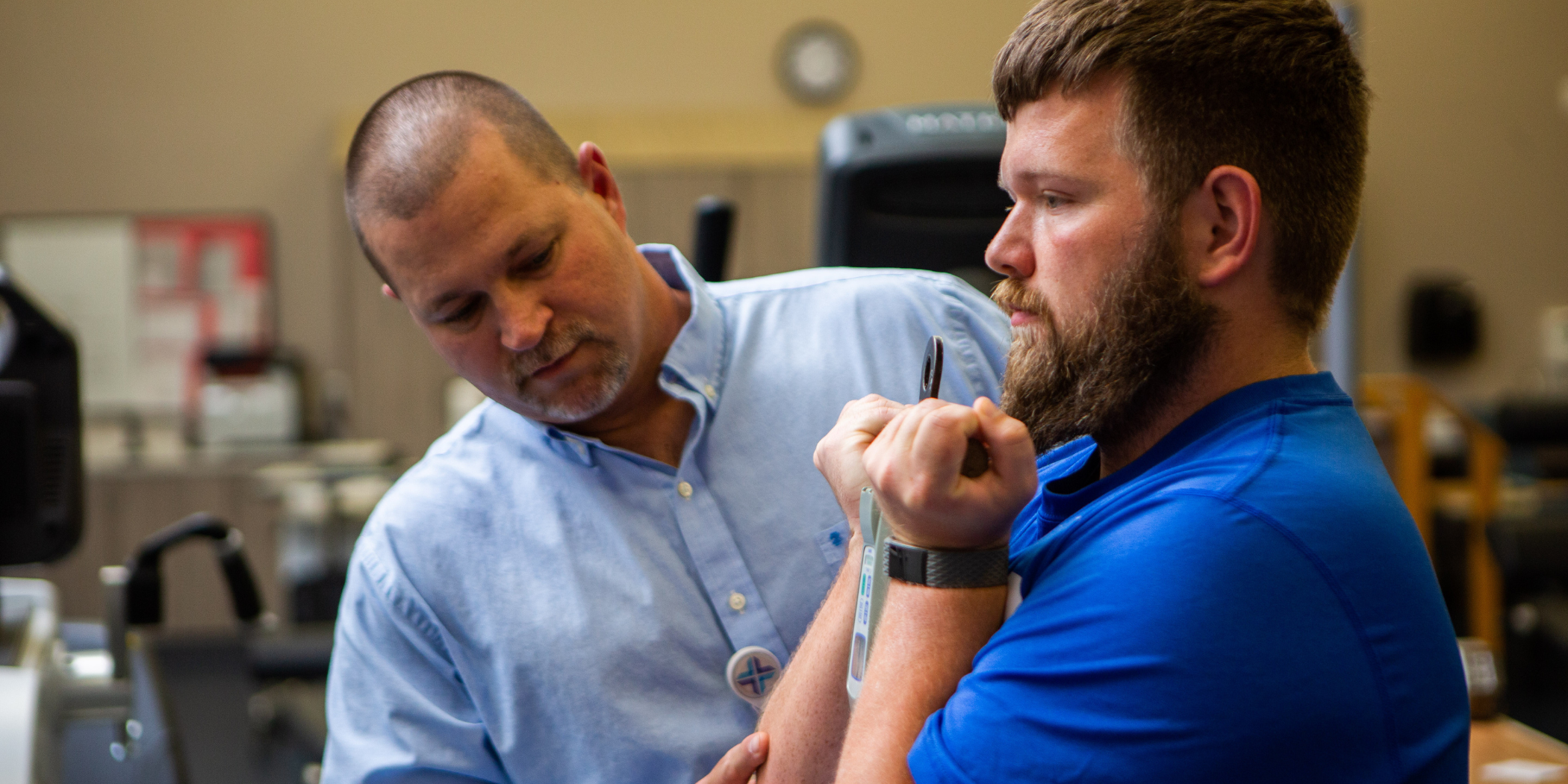
“Report it. Don’t hesitate”
Editor's note: Spartanburg Regional Healthcare System is taking part in Hospitals Against Violence Day, an initiative of the American Hospitals Association held June 9, 2017.
Sewing up stitches or assessing a broken arm may be part of the everyday work of an emergency room nurse. But sometimes the cause of these injuries may be more complex — and the pain these wounds cause is more than skin deep.
When emergency nurses at Spartanburg Medical Center suspect that injuries may be caused by violence, they call forensic nurses known as SANE — Sexual Assault Nurse Examiners.
SANEs are trained nurses that combine the education of a registered nurse with the forensic aspects of a scientific investigation of the trauma inflicted during acts of violence. They deliver trauma-informed care to minimize the long-term negative impact experienced by victims of violence and ensure that follow-up care is provided to begin the healing process. They also serve as witnesses by giving expert testimonies in criminal court.
SANE nurses work with adults, but the majority of their patients are children. More than half of the cases they see are also sexual assault, with the rest being other forms of violence, such as child abuse or domestic violence.
Reporting violence
The issue is getting the patient to talk about abuse. Healthcare providers only have the injury to go by, and rely on the patient to report what happened to them. But if an emergency center nurse has a gut feeling that something is going on, they will call a SANE nurse.
Getting at the truth can be a delicate task – especially if someone else is accompanied by someone else.
“If no one is with them, we are able to question the patient more. If someone is with them — especially if it is the abuser — it is more difficult,” said Ryan Camp, director of the emergency center. “There are a lot of things you can pick up on if someone is with the patient — they will answer questions for the patient or doesn't want them to go to the restroom alone.”
Nurses can also spot violence if there are frequent fractures, a delay in care, or specific injuries like a broken jaw.
"A patient may have multiple ER visits for different extremity injuries and have the same story every time - they fell down the stairs,” said Jennifer Combs, forensic nursing coordinator for Spartanburg Regional Healthcare System. “This is an example of a situation that causes concern for violence."
A SANE's process
Before a medical examination, the patient tells his or her story one time while SANE nurses and law enforcement are in the same room. This lessens the need to tell the story – and relive the abuse – multiple times.
Then, patients are examined from head to toe for trauma and injuries that the patient may not even know about. But with children, getting to this process can take longer.
“In an abusive situation, children are groomed to trust and love the individual, so they are afraid to speak up,” Combs said. “The abuser is also often someone close to the child and their family.”
SANE nurses examine both psychological and physical effects.
“We provide trauma-informed care — which looks at the whole patient,” Combs said.
Following up
SANE works with community organizations like the Safe Home-Rape Crisis and the Children's Advocacy Center of Spartanburg Cherokee and Union.
“When Spartanburg Regional's SANE nurses suspect abuse, they report it to the authorities like law enforcement and DSS. Then the authorities send those children to the Children's Advocacy Center,” said Suzy Cole, executive director of the Children's Advocacy Center. “We hold multidisciplinary meetings to examine each case, and Jennifer Combs is part of this group.”
With each case, the follow-up is the most important — making sure adults and children find counseling, safe homes, or children are placed in homes through DSS. But each of these cases can start with it being reported.
“If you have any suspicion of abuse, report it to law enforcement,” Combs said. “Don't hesitate.”
If you suspect child abuse, please speak up. In Spartanburg County, call the S.C. Department of Social Services at 864-596-3001 (press 1) during business hours, or 864-585-1445 after hours.
Abuse rates around the state
- 1 in 3 women and 1 in 4 men have been victims of some form of physical violence by an intimate partner within their lifetime. (SCCADVASA)
- 1 in 4 women and 1 in 7 men report having experienced severe physical violence by an intimate partner during their lifetime. (SCCADVASA)
- In every year that records have been kept, South Carolina ranks in the top ten states in the nation in the rate of women killed by men. Over 60 percent of these victims were killed with guns. (SCCADVASA)
- Nearly 1 in 5 women and 1 in 71 men report being raped during their lifetime. In addition, 45.9 percent of South Carolina women and 17.8 percent of men in our state report being victims of sexual violence or coercion other than rape. (SCCADVASA)
- Child abuse cases increased 80 percent during a five-year period from 2008-2012 – in part due to improved efforts to identify the problem.
- In 2012, there were 424 substantiated cases of child abuse.
- More than 36,000 victims report a domestic violence incident to law enforcement statewide annually. This is thought to be a fraction of the actual number of domestic violence cases.
Source: South Carolina Coalition Against Domestic Violence and Sexual Assault












